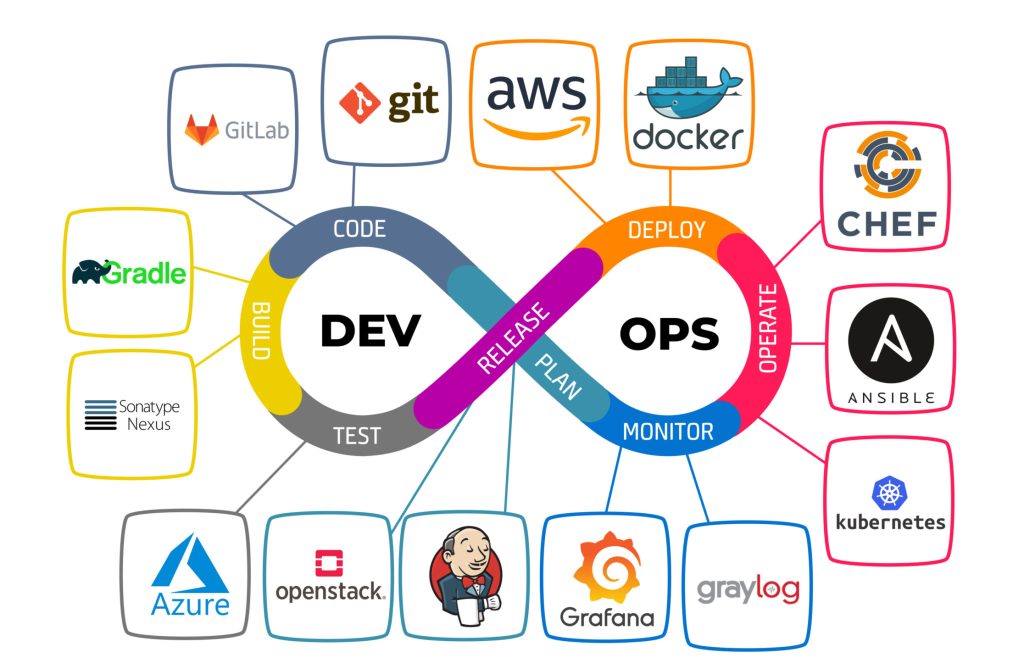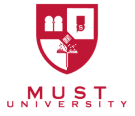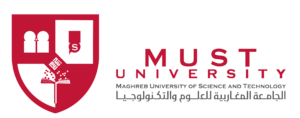Devops
⸺ Notre programme de certificat DevOps de 6 mois est conçu pour vous aider à maîtriser les compétences DevOps essentielles qui sont très recherchées sur le marché du travail actuel. Ce programme est basé sur les cours DevOps les plus pertinents disponibles sur Coursera et est enrichi de cas pratiques et de projets personnalisés élaborés par des instructeurs expérimentés de MUST University.
Vous apprendrez les principes fondamentaux de DevOps, les concepts et les outils essentiels tels que la conteneurisation à l'aide de Docker et Kubernetes, les systèmes de contrôle de version et les commandes Shell Linux. Vous découvrirez également comment mettre en œuvre ces technologies dans un cadre de développement agile, y compris Scrum. Ensuite, nous nous concentrerons sur des sujets avancés tels que le développement piloté par les tests, l'infrastructure en tant que code et l'automatisation CI/CD. Vous réunirez le tout en travaillant sur un projet pratique pour appliquer ces compétences. Rejoignez-nous pour acquérir une expertise dans les outils DevOps cruciaux que les employeurs recherchent et démarrer votre carrière dans le domaine dynamique du DevOps.
Aperçu

Ce programme DevOps de 6 mois proposé par l'université MUST couvre les compétences DevOps essentielles telles que Docker, Kubernetes, Git et CI/CD. Il combine le contenu Coursera avec des projets pratiques pour une carrière DevOps prospère.
Aperçu du programme
- Format : Hybride (en ligne + en présentiel).
- Langues: Anglais et français.
- Durée 6 mois, avec un emploi du temps flexible
- Date de début: Démarre chaque trimestre (janvier, mars, juin, septembre)
- Emplacement : En ligne & Campus MUST, Lac 3, Tunis
- Coût pour les professionnels : 2 800 TND (éligible au remboursement TFP)
- Coût pour les étudiants : 1 400 TND (50 % de réduction)
- Participants internationaux : 1400 USD
Pourquoi rejoindre ce programme ?
- Compétence officielle et reconnaissance : Obtenez une preuve officielle de votre expertise et acquérez une distinction qui vous permettra de vous démarquer dans le paysage concurrentiel des technologies de l'information.
- Opportunités de carrière élargies : Accédez à un plus large éventail de postes très demandés et faites progresser votre carrière dans le domaine en pleine expansion du DevOps.
- Amélioration de la résolution de problèmes : Développez de solides compétences pour relever des défis informatiques complexes, de l'automatisation des infrastructures aux pipelines de livraison continue.
- Compétences polyvalentes et transférables : Acquérez des compétences hautement transférables, applicables dans divers secteurs et technologies, qui feront de vous un professionnel polyvalent et adaptable.
Résultats
Qu'allez-vous apprendre ?
- Maîtrisez les outils DevOps essentiels.
- Mettre en œuvre Agile et CI/CD.
- Acquérir une expérience pratique dans le cadre de projets.
- Lancez votre carrière DevOps en toute confiance.
À qui s'adresse ce programme ?
- Développeurs DevOps : Traduire les objectifs commerciaux en logiciels.
- Particuliers : Maîtrisez DevOps, faites progresser votre carrière.
- Parties prenantes commerciales : Piloter la stratégie commerciale dans le domaine technologique.
- Directeurs informatiques : Définir la stratégie informatique de l'organisation.
sujets
Thèmes principaux
- Les fondements du DevOps, de l'Agile et du Cloud Computing.
- Outils et pratiques de développement logiciel (Git, Python, TDD/BDD).
- Développement d'applications modernes (conteneurs, microservices, CI/CD).
- Sécurité DevOps, surveillance et projet Capstone
Formateur(s)
- Formateurs (Université MUST) : Notre faculté de l'université MUST comprend des experts universitaires et des praticiens en DevOps, qui apportent leur expérience pratique dans les domaines du cloud, du CI/CD et des méthodologies agiles.
- Formateurs (IBM) : Le programme fait également appel à des formateurs de haut niveau issus d'IBM, reconnus pour leurs contributions significatives et leur expertise pratique dans le domaine du DevOps. Ces leaders du secteur apportent au programme des connaissances pratiques inestimables et des pratiques de pointe.
Inscription

